
Louise Goffin hosts and produces Song Chronicles, a podcast featuring conversations with legendary songwriters, musicians and producers from the relaxed perspective of an insider, talking the "inside baseball" of songs and record-making with peers. Song Chronicles creates an exclusive record of historic stories told by the music makers themselves. Guests have included 23x GRAMMY-winning sound engineer and producer Al Schmitt, 7x GRAMMY-winner Gloria Estefan, multi-platinum songwriter-producers Desmond Child and Sam Hollander, and many more. Song Chronicles follows where The Great Song Adventure left off, an earlier podcast co-hosted with author and songwriter, Paul Zollo where they interviewed songwriters like Mike Stoller, Chrissie Hynde, Chris Difford and Chuck D. The Great Song Adventure archives includes an intimate five-part interview with Carole King, which remains King's most extensive interview to date.
Episodes
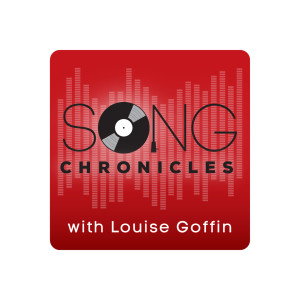
Friday Jun 04, 2021
Season 2 Episode 7: Aaron Lee Tasjan
Friday Jun 04, 2021
Friday Jun 04, 2021
Welcome to Episode 7 of Season 2 of Song Chronicles. Our featured special guest is Aaron Lee Tasjan. We spoke back in February, right after the release of his fantastic new album Tasjan! Tasjan! Tasjan!

Aaron's newest album
Aaron has led a fascinating life. He's lived in many different corners of the country, and has worked with the New York Dolls, Lucinda Williams, Jack White, and Tony Visconti. In this conversation, Aaron shares insights he learned from the artists he's connected with along the way.
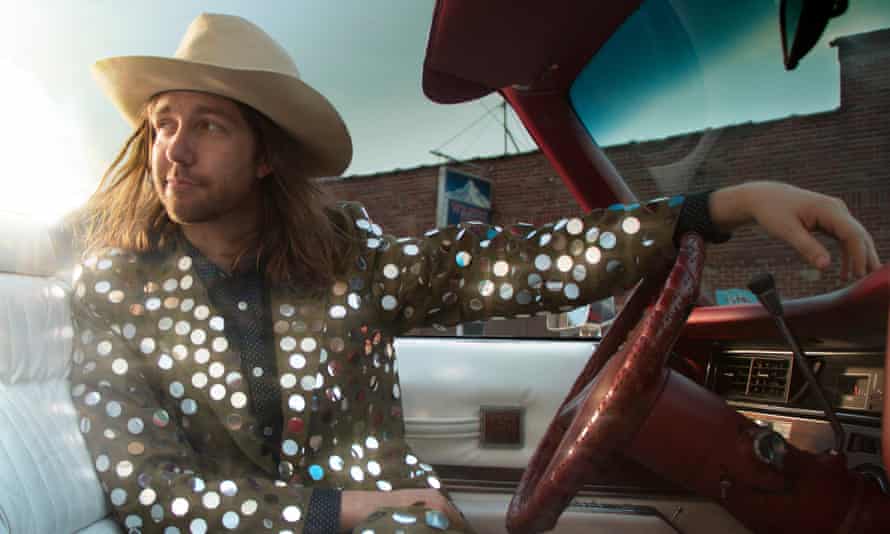
While living in Ohio at age 16, a song of Aaron’s caught the attention of Peter Yarrow, who invited Tasjan onstage to perform with Peter, Paul and Mary. He learned from Yarrow how far songs can go from their intended meaning based on the projection of the listener.
After earning a full scholarship to Berklee College of Music, Aaron dropped out after only one semester to get on with the business of making music. "Learning, that's a two-way street — you have to be open to it," he says.
At the age of 19, he moved to New York City to start living his dream and had to figure out how to become part of the city's network of working musicians. Eventually, he got encouragement from and got to work with some of his Mount Rushmore musical heroes. We talk about the lessons he learned about creative passion and work ethic during that time and how he found community within the NYC music scene.
Aaron met singer-songwriter Justin Tranter and together they formed the glam rock band Semi-Precious Weapons. Tony Visconti produced their debut album. We talk about what makes rock & roll work — Aaron’s take is that rock & roll is slightly embarrassing — and how the band’s manager BP Fallon created rock & roll moments for them, such as connecting them to Kate Moss for a hang that got them on the cover of the Daily Mail.
After Aaron left Semi-Precious Weapons, he spent three years as lead guitarist for the New York Dolls.
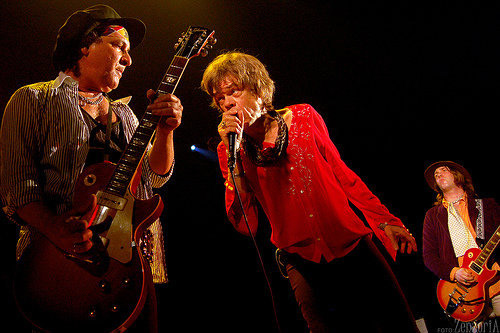
Aaron playing with the New York Dolls
Since 2013, Aaron has lived in Nashville, writing songs and recording genre-defying solo work. In this time, he has released five solo albums: In The Blazes (2015), Silver Tears (2016), Karma For Cheap (2018), Karma For Cheap: Reincarnated (2019), and Tasjan! Tasjan! Tasjan! (2021). His songwriting can be heard on recordings by Pat Green, Yola, BP Fallon, and JD McPherson. We discuss the good and bad parts of the professional music culture in Nashville.
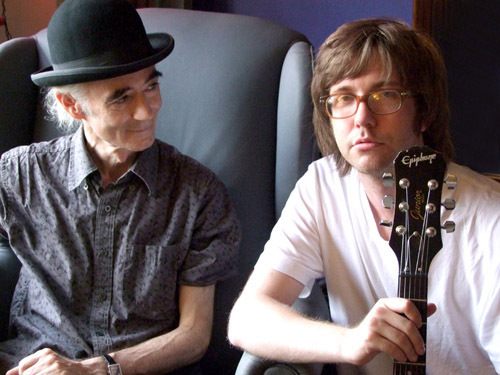
BP Fallon and Aaron Lee Tasjan
Aaron's fashion sense is all his own. He makes some of his own clothes, such as the sweater seen on the cover of Tasjan! Tasjan! Tasjan! We talk about what songwriting has to do with sewing and other ways he finds creative inspiration in non-musical activities.

Aaron in the sweater he made
Enjoy this conversation with Aaron about everything that goes in to a creative life.

Friday Apr 16, 2021
Season 2: Episode 6: Nicole Atkins
Friday Apr 16, 2021
Friday Apr 16, 2021
Season 2: Episode 6
Nicole Atkins

Photo by Barbara FG
Episode 6 of Song Chronicles’ second season features a freewheeling conversation with Nicole Atkins, a singer-songwriter NPR Music hailed as “one of those people who is so inventive in everything she does.”

Last April, Nicole released her fifth full-length, Italian Ice, an album she described as to "an acid trip through my record collection." It certainly serves up an exquisite blend of soul, country, rock, blues, and classic pop that showcases her powerful, dramatic voice.
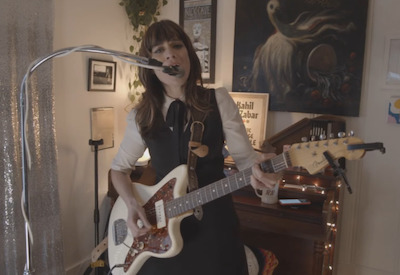
Unable to do her normal touring for her new album, Nicole got creative and hosted an online record release event. She also started presenting a weekly livestream variety show, We’re All In This Together. During the summer, Nicole switched to doing a live streaming series, Live From the Steel Porch, initially based out of Asbury Park’s Langosta Lounge (near her hometown of Neptune City, New Jersey) and later from The Dive Motel in East Nashville, her current home.
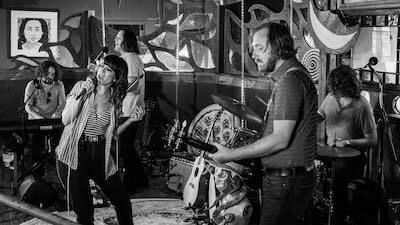
Nicole performing at the Langosta Lounge
In December, Nicole released the holiday single “Every Single Christmas,” which she co-wrote with JD McPherson. (She quite accurately described her version as “Cyndi Lauper and Brenda Lee, the spirit of the NY Dolls and The Ramones' 'Palisades Park,' all rolled up into a National Lampoon’s Christmas movie"). Endlessly creative, she has already put out via Bandcamp this year covers of Brenda Lee’s “Break It To Me Gently” and Hoagy Carmichael’s “Stardust," as well as a duet with her friend Marissa Nadler on The Fleetwoods’ gem “Mr. Blue.”
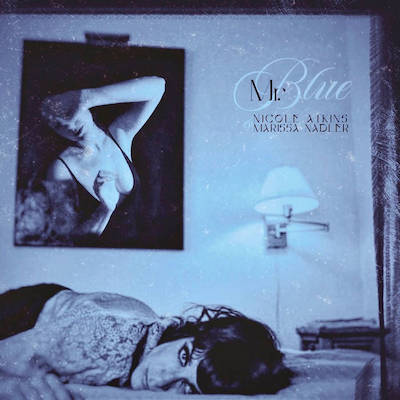
The pandemic also gave her the opportunity to spend a lot of time with another of creative loves: painting. In fact, this interview took place while she was creating a mural at the Ivy Manor Studios in Sheffield, Alabama in the legendary Muscle Shoals area.

Nicole points out a detail of the mural she was painting at Ivy Manor Studios
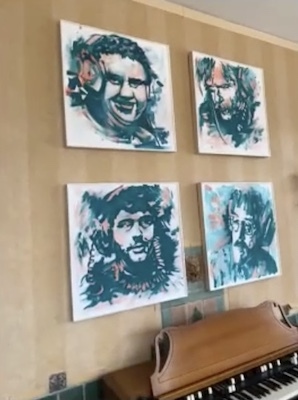
Portraits of the Swampers that Nicole painted
Muscle Shoals has been a favorite destination for Nicole of late. It’s the location for her label, Single Lock Records, which was founded by The Alabama Shakes’ Ben Tanner and the acclaimed singer-songwriter John Paul White. She also recorded Italian Ice at the renowned Muscle Shoals Sound Studio. Featuring contributions from Swampers David Hood and Spooner Oldham, Spoon’s Britt Daniels, the album has garnered much acclaim. Consequence of Sound raved that Italian Ice is “the best thing she’s done so far,” and Elvis Costello stated it proves “once more that you can respect the ‘then’ and still be about the ‘now’.”
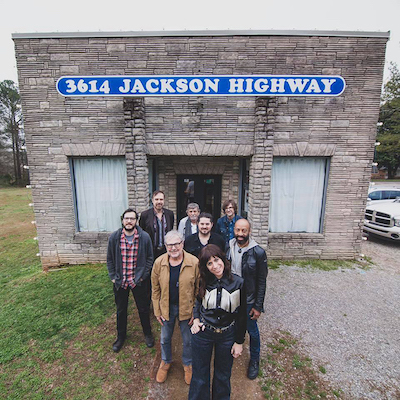
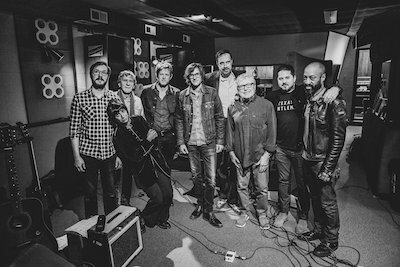
Nicole outside and inside the Muscle Shoals Sound Studio
Music has been a major part of Nicole’s life since childhood. She began learning piano when she was nine, taught herself guitar at 13, and was playing in bands by seventh grade. While she went to University of North Carolina at Charlotte to study art, Nicole admits she concentrated more on music. During her time in Charlotte, she played in the popular local band Nitehawk and the alt-country group Los Parasols. She then spent several years bouncing between Charlotte and New York City, sometimes playing in groups and sometimes solo.

Nicole performing on Late Night With David Letterman Show in 2007
Attracting major label interest, Nicole and her band The Sea signed with Columbia in 2006, with their debut, Neptune City, appearing in 2007. Nicole had a new band, dubbed The Black Sea, when she started doing her second album; however, problems with Columbia made her leave the label without the album being released. The record (entitled Mondo Amore) eventually came out on Razor & Tie Records in 2011.

Nicole singing at La Zona Rosa at 2010's SXSW. Photo by Kirk Stauffer
While preparing to make album three, Nicole suffered the bad luck of having Hurricane Sandy flood her family’s home. Neptune City producer Tore Johansson invited her to record her album at his studio in Sweden. There she cobbled together songs from fragments she had on her iPhone, which resulted in 2014’s Slow Phaser, her self-described “prog-disco” album.

Photo by Brett Winter Lemon
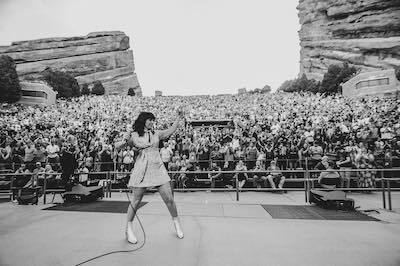
In concert at Red Rocks Photo By Rett Rogers
Teaming up with Single Lock Records, Nicole recorded her fourth album in Fort Worth, Texas with the production trio Niles City Sound (the team behind Leon Bridges’ breakout debut). The stylish Goodnight Rhonda Lee exudes a retro vibe that attracted comparisons to Dusty Springfield, Roy Orbison, and Patsy Cline, and it’s a sound that evolved into something even more timeless on Italian Ice.
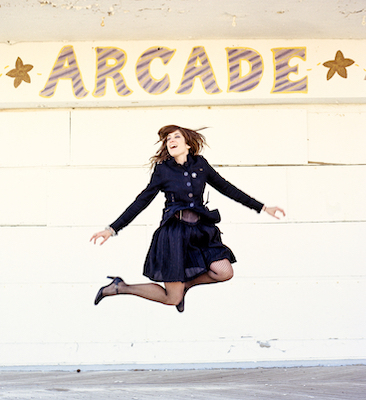

Photo by Barbara FG
Please enjoy our conversation with the multi-talented, thoroughly delightful Nicole Atkins.

Thursday Mar 04, 2021
Season 2. Episode 5: Bob Ezrin - Part 2
Thursday Mar 04, 2021
Thursday Mar 04, 2021
Season 2: Episode 5
Bob Ezrin
Part 2
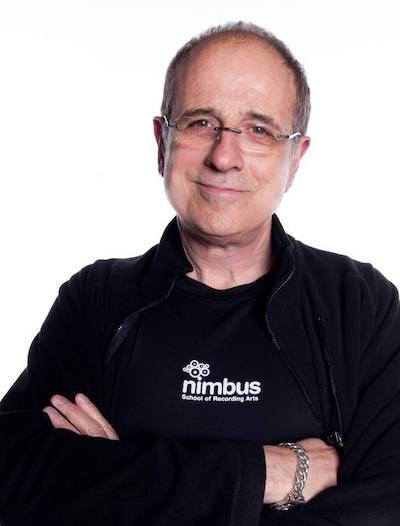
This episode features the second half of our conversation with Bob Ezrin.
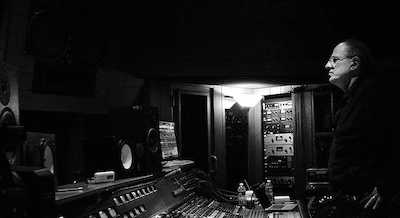
Few producers have had careers as Bob Ezrin has had. The award-winning producer has worked with some of rock’s biggest acts (Pink Floyd, Aerosmith, Alice Cooper, Green Day, Kiss, Rod Stewart, Jane’s Addiction, and U2).
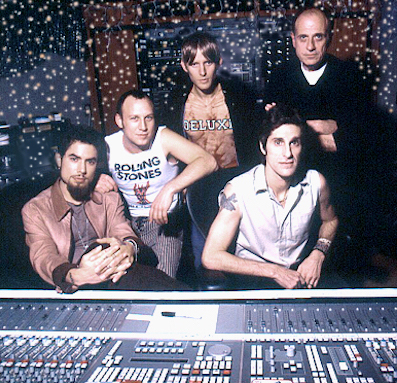
Bob worked with Jane's Addiction on 2003's Strays album. Photo by Neil Zlowzower
In the first part of our interview, Bob talked about producing The Wall, one of the greatest concept albums in rock history. In fact, he is well known for his work on concept albums, helming such projects as Kiss’s Music From “The Elder,” Lou Reed’s Berlin, Kansas’ In the Spirit of Things, Nine Inch Nails’ The Fragile, and Alice Cooper’s Welcome To My Nightmare & Welcome 2 My Nightmare.
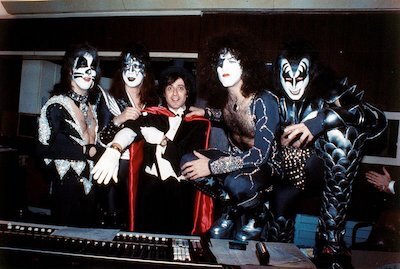
Bob in the studio with Kiss in 1976
According to Bob, his love for injecting a sense of theatricality into albums comes from his childhood, and his amusing explanation involves a historic record player, Sir Thomas More, and Spike Jones (the comical 1950s bandleader, not Spike Jonze the filmmaker).
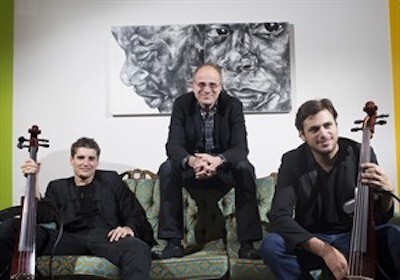
Bob flanked by 2Cellos. Photo by The Canadian Press/Michelle Siu
Producing all those adventurous albums exemplify Bob’s values in record-making, among which that it’s important to see, as well as hear, the music when creating a record. A record is simply another form of theater. His work impressively has covered a broad range of genres: Americana (Jayhawks), New Wave (Berlin), Country (Johnny Reid), Celtic (Natalie McMasters), Classical (2Cellos), Folk (Murray McLauchlan), Jam Bands (Phish), Pop (Air Supply), and Soundtracks (Heavy Metal 2000).
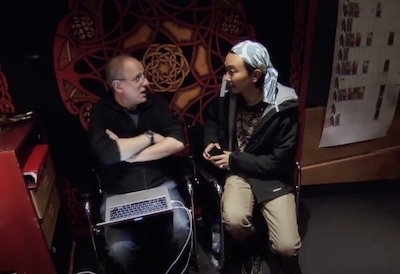
Bob at work with the band Hanggai
The scope of his massively successful work includes recording acts from all over the world, such as Finland (Hanoi Rocks), France (Téléphone), Italy (Andrea Bocelli), Uganda (Geoffrey Oryema), Spain (Héroes del Silencio) and Mongolia (Hanggai). He also takes on music projects with iconic musician-actors like Tim Curry, Kristen Chenoweth, Jared Leto (30 Seconds To Mars), and Johnny Depp (Hollywood Vampires).
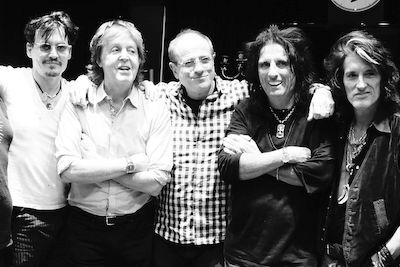
Paul McCartney stopping by a Hollywood Vampires' recording session. Johnny Depp on the far left with Bob, Alice Cooper and Joe Perry on the right side
Bob is also familiar with mixing for live recording projects such as Taylor Swift’s Speak Now World Tour Live, The Alice Cooper Show, and Roger Daltrey’s A Celebration: The Music of Pete Townshend and The Who.
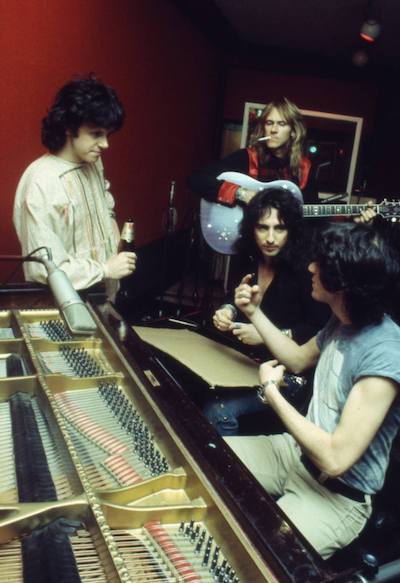
Donovan (far left) visits with Glen Buxton, Alice Cooper, and Bob, circa 1972
Bob’s latest collaboration with Alice Cooper, Detroit Stories, came out shortly after our conversation took place. This project represents a truly special aspect of Bob’s career – his long-running relationships with performers. He’s done over a dozen Alice Cooper albums, going back to 1971’s Love It To Death. His partnership with Kiss spans from 1976’s Destroyer to 2012’s Destroyer Resurrected. It also shows up in his work with Peter Gabriel (Gabriel’s 1977 solo debut and 2010’s Scratch My Back) and Pink Floyd (1979’s The Wall and 1994’s The Division Bells).
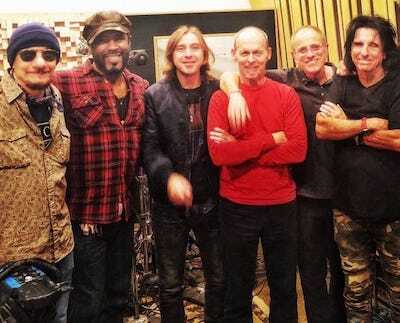
The guys behind Detroit Stories Courtesy Detroit Free Press
Notable too is Bob’s lengthy work associations with two revered rock guitarists: Dick Wagner and Steve Hunter. He met each guitarist on two of his earliest production jobs: Hunter was in the Mitch Ryder-fronted band Detroit while Wagner played in the short-lived group Ursa Major. Over the years, Bob tapped Dick and Steve for other many projects, most prominently were the times the two played guitar together in Alice Cooper’s and Lou Reed’s bands. Not surprisingly, Bob also produced solo albums for each guitarist.
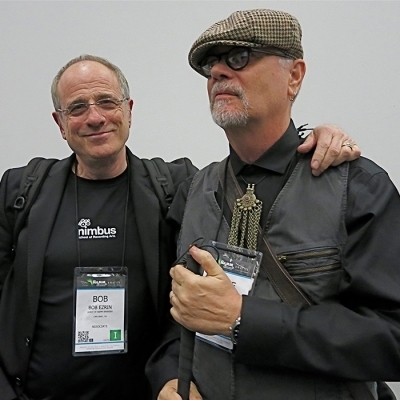
Bob with Steve Hunter
In recent years, Bob has helmed two rather unique projects: working for the first time with a veteran group that hasn’t done a studio album in many years. In 2008, he produced Bauhaus’s Go Away White, their first studio album in 25 years. Then, in 2013, Bob did Now What!?!, the album Deep Purple made after an eight-year hiatus. Both projects were well received, and Bob went on to produce Deep Purple’s next two albums.
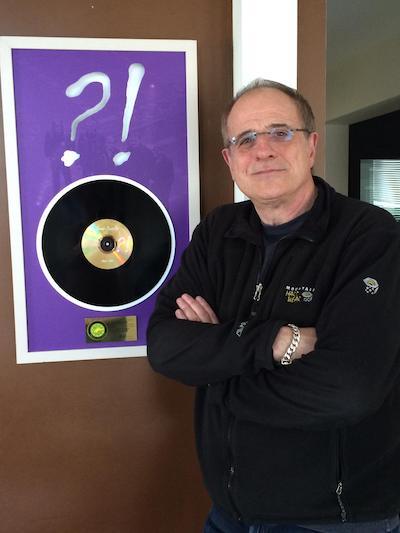
Bob produced Deep Purple's Now What?!
With his wealth of studio experience, Bob has developed some guiding principles regarding the producer’s role. One involves challenging the musicians to create something they are capable of creating, and he talks about how this “setting the bar” approach played a central role in his collaboration with Peter Gabriel on the former Genesis frontman’s first solo album.
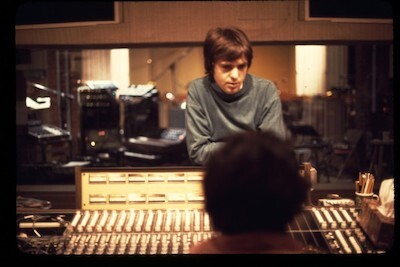
Peter Gabriel doing the recording of his first solo album. Photo by Larry Fast
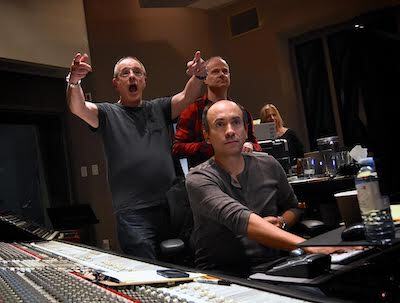
Bob producing the legendary Canadian band Lighthouse in 2017
Outside of the recording studio, Bob has been involved in many significant multi-media endeavors. Early in the 1990s, he co-founded 7th Level, a pioneering computer software company that put out educational and entertainment CD-ROMs, including many highly successful Monty Python titles. At the end of the 90s, Bob co-founded the innovative internet radio provider Enigma Digital; Clear Channel later purchased the company and Bob served as vice-chairman of Clear Channel Interactive.

Bob being honored with a star for Canada's Walk of Fame. Photo by Michelle Siu/The Canadian Press
A Toronto native, Bob is a member of both the Canadian Music Hall of Fame and the Canadian Music Industry Hall of Fame along with having a star on Canada’s Walk of Fame. Deeply believing in the importance of community service, Bob started the charity organization Music Rising with U2's The Edge and he also is a board member of the Mr. Holland's Opus Foundation, two non-profits whose work involves providing children the opportunity to make music.
![]()
Bob with his Music Rising co-founder The Edge
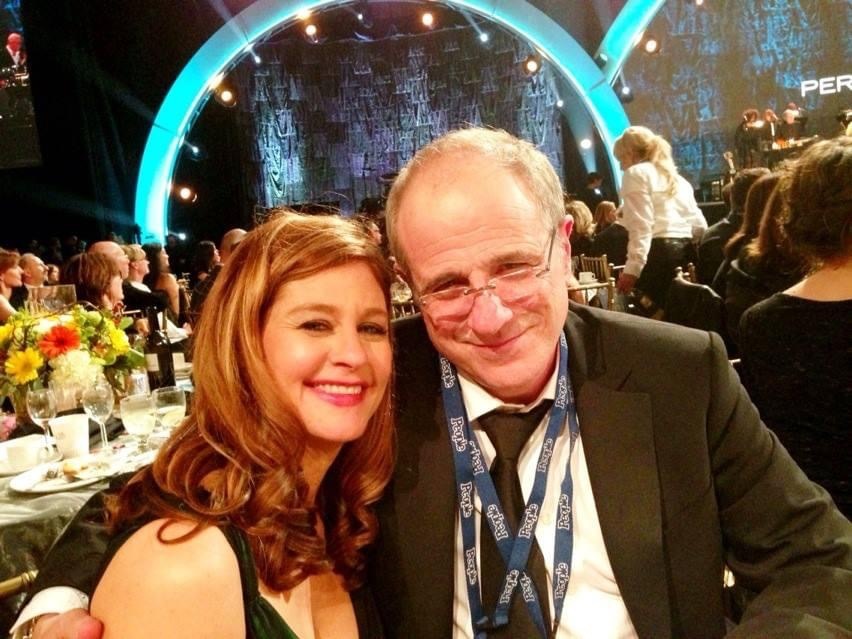
Louise Goffin with Bob at a MusiCares tribute to Carole King
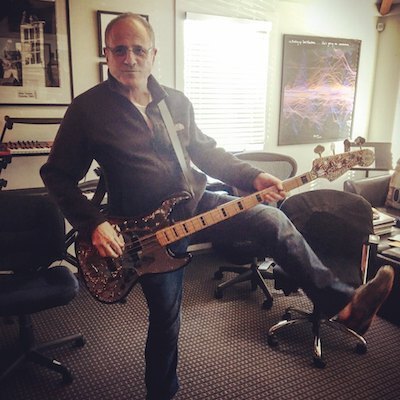
Please enjoy Part Two of our illuminating conversation with the amazing Bob Ezrin.

Thursday Feb 25, 2021
Season 2: Episode 4: Bob Ezrin
Thursday Feb 25, 2021
Thursday Feb 25, 2021
Season 2: Episode 4
Bob Ezrin
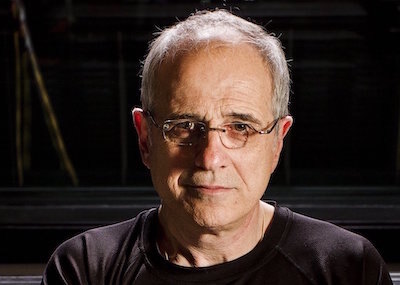
Episode 4 of Song Chronicles Season 2 presents the first of our two-part interview with the renowned producer Bob Ezrin.
Since the 1970s, Bob has been the producer of some of the biggest albums in rock history. Here are some of the albums he did during his first decade as a producer: KISS’s record Destroyer, Lou Reed’s Berlin, Peter Gabriel’s solo debut, Pink Floyd’s landmark record The Wall, and seven hit albums with Alice Cooper.
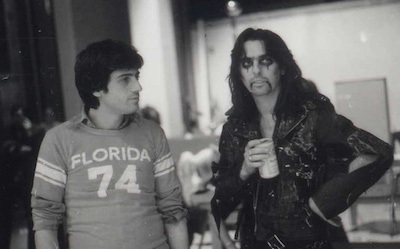
Bob with Alice Cooper circa 1975
A Toronto native, Bob launched his career at the age of 19 when he got a job with Jack Richardson, a top Canadian producer. In this episode, he reveals the funny circumstances involved with his first producer’s gig: Alice Cooper’s breakout record Love It To Death.
The important mentorship he received from Jack was a reason behind Bob starting the Nimbus School of Recording & Media, a school he co-founded with Jack’s son, Garth.
During our conversation, Bob touches on what he sees his job is as a producer, and why he feels it is vital “to keep the passion and wonder of youth for as long as you can.”
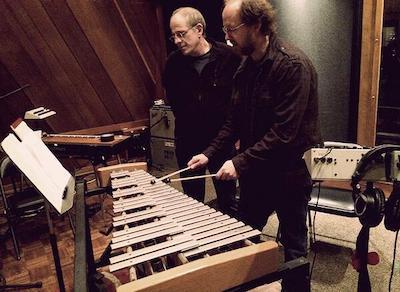
Bob in the studio with Phish's Page McConnell
Bob has produced albums for Deep Purple, Rod Stewart, Jane’s Addiction, The Deftones, The Catherine Wheel, Hanoi Rocks, The Jayhawks, Phish and more.
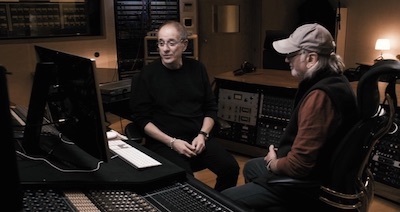
Bob and Deep Purple's Roger Glover
He also has made soundtrack albums, produced classical acts like 2CELLOS and the Canadian Tenors, and made opera superstar Andrea Bocelli’s first #1 album, Si.
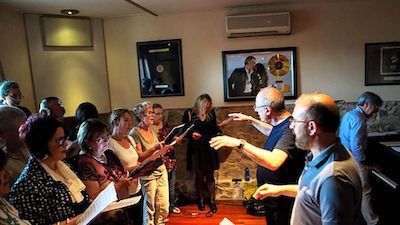
Bob at work on Andrea Bocelli's album
In the 1990s, Bob helped start the computer software company 7th Level and the internet radio provider Enigma Digital. He co-produced the star-filled 2009 benefit The Clearwater Concert, which celebrated Pete Seeger’s 90th birthday and, more recently, was involved in the stage version of Berlin.
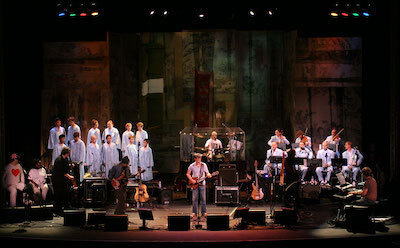
The stage adaptation of Lou Reed's Berlin
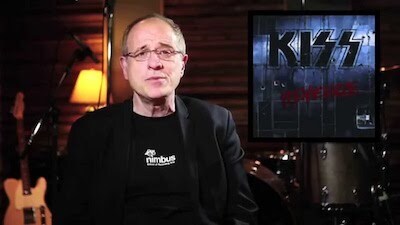

You will also hear some fascinating behind-the-scenes stories about the making of The Wall, including the studio technology that Bob introduced to Pink Floyd.
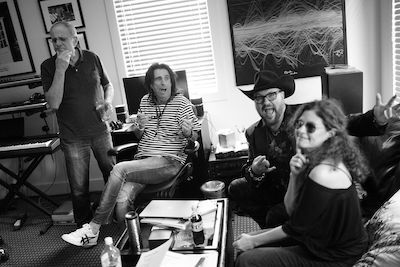
Bob welcomes Alice Cooper, Desmond Child and Louise to his studio. Photo by Kyler Clark
And this is just half of our entertaining interview with Bob Ezrin! You’ll hear more from him in the next edition of Song Chronicles.
But for now, enjoy the first of our two episodes with the one and only Bob Ezrin.

Thursday Feb 04, 2021
Season 2: Episode 3. Jeff Trott
Thursday Feb 04, 2021
Thursday Feb 04, 2021
Season 2: Episode 3
Jeff Trott
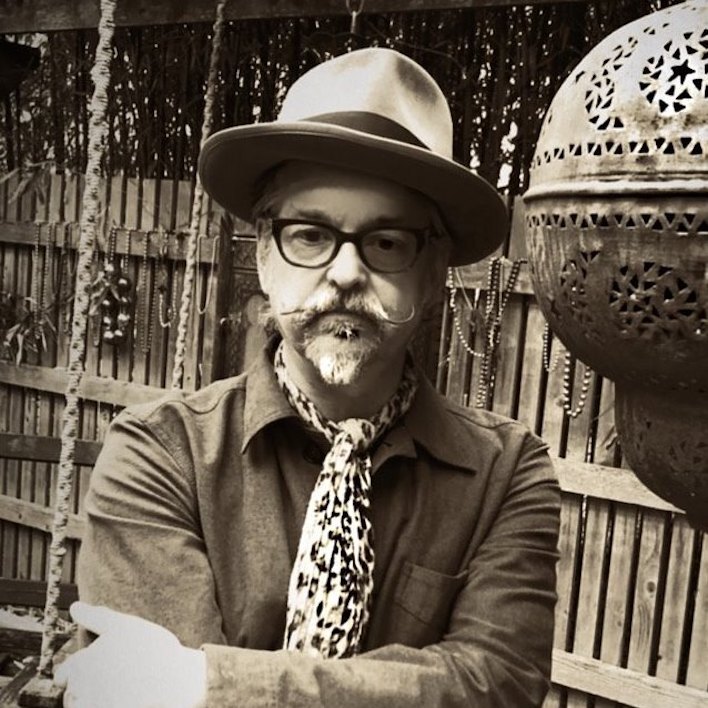
“When you make a record, it's like a snapshot of your life at that time.” Jeff Trott, the guest on this episode of Song Chronicles, certainly knows what he’s talking about when it comes to making records. The songwriter/producer/multi-instrumentalist has appeared on hundreds of albums since he started out playing guitar with the San Francisco-based alt-rock band Wire Train in the mid-80s.
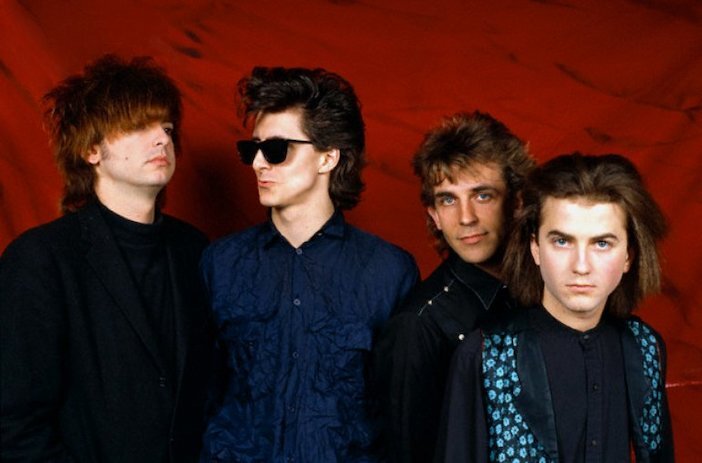
Wire Train (Left to Right)
Jeff Trott, Kevin Hunter, Anders Rundblad, Brian MacLeod
Jeff is best known for his long-running work with Sheryl Crow, a collaboration that has earned him a Grammy and BMI’s Songwriter of the Year honors. They first met, in a true case of serendipity, in the early ‘90s. Starting with her second album, he has served as a co-writer, accompanist and producer for Crow straight through her latest full-length, Threads.
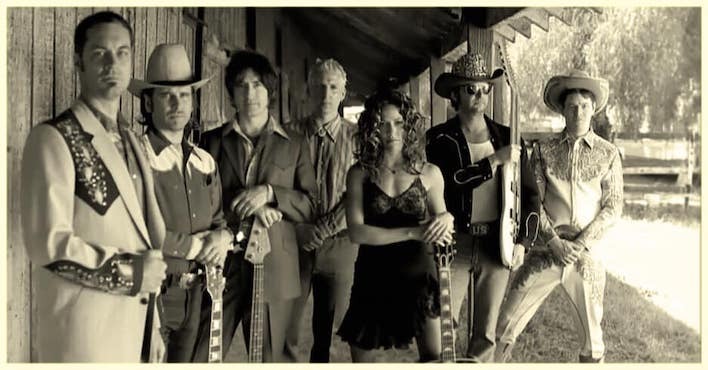
Jeff with Sheryl Crow's band, circa 1997
Jeff talks about his songwriting process with Crow – including how her contributions to his early version of “If It Makes You Happy” turned the tune into the Grammy-winning smash hit – as well as why he finds collaborating such as fascinating, mysterious thing to do.
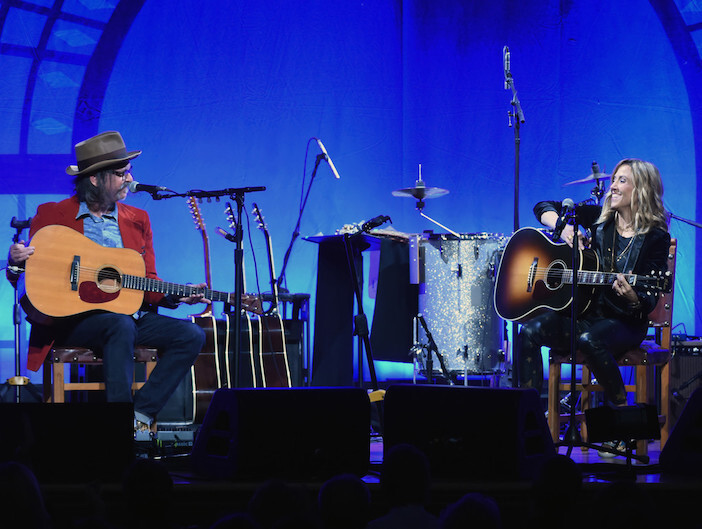
Jeff performing with Sheryl Crow
Now Nashville-based after living most of his life on the west coast, Jeff possesses a lengthy and impressive resume featuring well-known acts that cut across the rock, country, blues, folk, and pop genres. Jeff was awarded Songwriter of the Year by BMI in 1998. Along with hits with Sheryl Crow, such as "If It Makes You Happy”, "Everyday is a Winding Road” ,“A Change”, "My Favorite Mistake” and “Soak Up The Sun”, he's written songs with Counting Crows, G. Love, Clare Dunn, O.A.R., Robert Randolph, and more. He's toured with Tears For Fears, Pete Droge and World Party and recorded with the likes of Aimee Mann, Stevie Nicks, Liz Phair, Wade Bowen and Rob Thomas, to name a few.
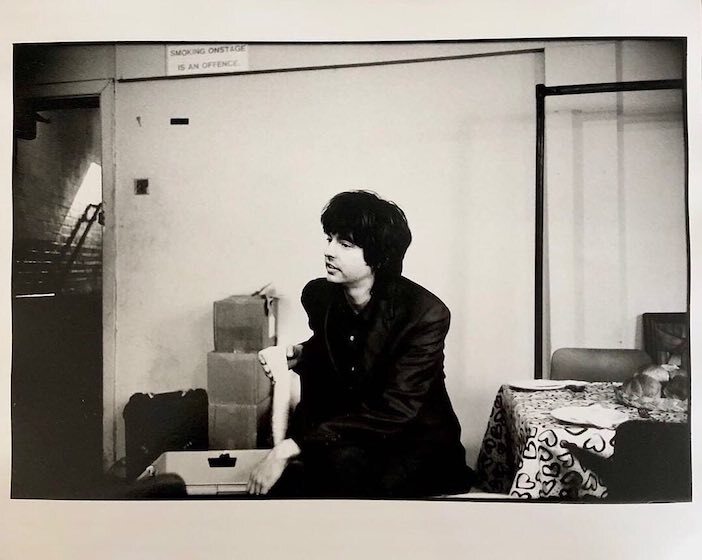
During his days with World Party. Photo by Chris Whitten
As a producer, Jeff’s credits include working with Aaron Lee Tasjan, Fastball, Leighton Meester, Max Gomez, Martha Wainwright, and Pete Yorn. Probably his most prominent production work, outside of the Sheryl Crow albums, was doing Hootie and the Blowfish’s widely-acclaimed recent reunion record, Imperfect Circle. It’s a job he got rather unexpectedly, with a casual get-together with the band to talk songwriting leading to them asking Jeff to produce their album.
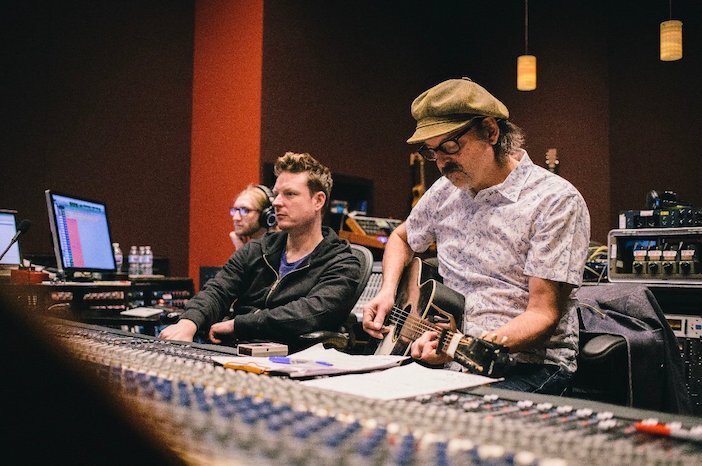
Assistant engineer Sean Badum, engineer Buckley Miller and Jeff during the Hootie & The Blowfish recording sessions
Jeff’s production work extends to film and TV too. He did the soundtrack for the Abigail Breslin film Janie Jones and co-produced a couple of Stevie Nicks tracks for the Practical Magic soundtrack. He even got a Daytime Emmy nomination for co-writing and co-producing with Crow the theme song for the Katie Couric talk show.
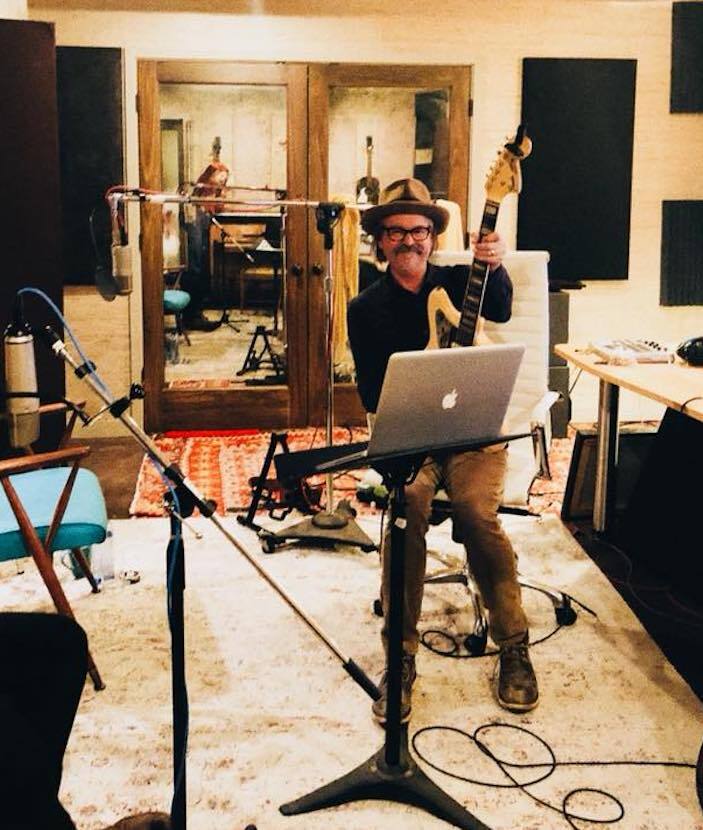
Despite his seemingly constant stream of work, Jeff did take the time out some years back to do a solo album, Dig Up The Astroturf, which he released on his own label. But even he used this project as a learning experience to discover all the things you need to know about making an album.
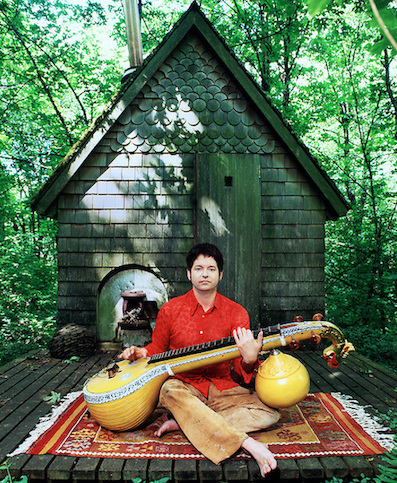
Photo by Kim Stringfellow
With his wealth and range of musical experiences, Jeff has accumulated all types of illuminating thoughts on what it takes to be a good collaborator, the tricky line you walk producing a band, and what has kept him enthusiastic about making music.
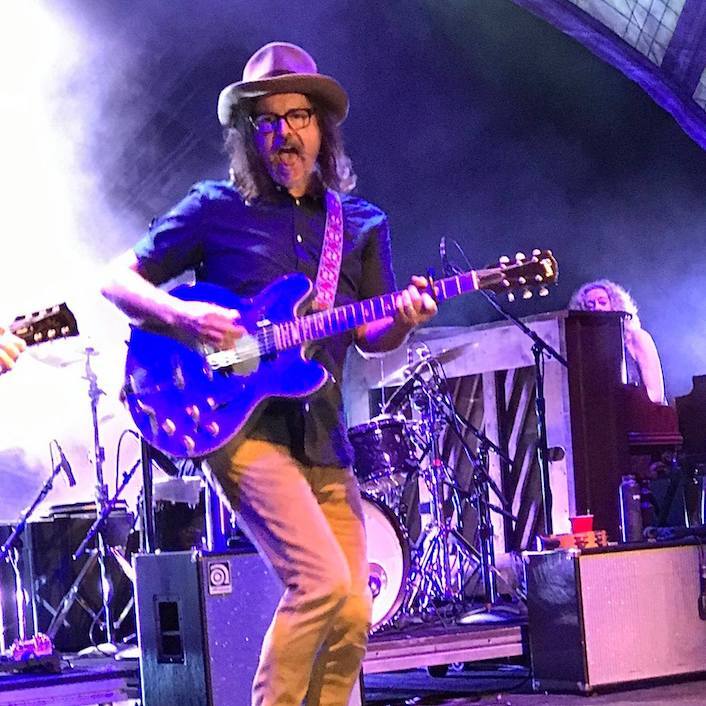
Photo by Steven Weinberg
Please enjoy listening to songwriter/musician/producer Jeff Trott on episode three of the second season of Song Chronicles.

Friday Jan 29, 2021
Season 2: Episode 2. Robin Danar
Friday Jan 29, 2021
Friday Jan 29, 2021
Season 2: Episode 2
Robin Danar


“I work in the shadows.”
For over forty years, Robin has operated behind the scenes making performers sound great whether he is manning the board in the studio or handling the front-of-house sound in venues large and small around the world.
The New York City native started hanging out with college DJs in Albany when he was a university student and soon found himself friends with musicians who were going places, writing their own songs. He went to NYC and introduced himself at CBGB, offering to sub for their front of house mixers and after getting the opportunity to fill-in doing freelance for them, hit it off with owner Hilly Kristal, becoming their full-time staff sound man in the late '70s. He got to mix for some iconic bands during their early days.
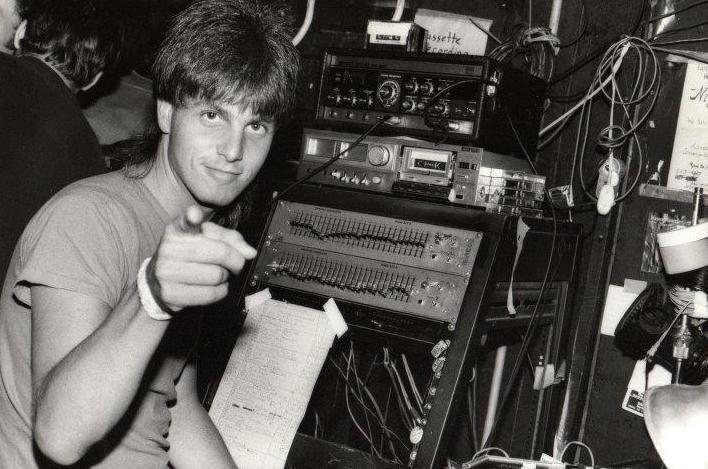
Robin working at CBGB
Robin also took a janitor job at RPM studios – a job that served as a way into learning engineering in a recording studio from mentors like engineer Jim Boyer (Billy Joel, Steve Winwood) and legendary producer Phil Ramone.

Some years later, the word on the street got out that he was known for his skills at getting a whole band, and particularly vocals, to sound great — so you could hear all the emotion and lyrics. He went on tour to mix sound for the likes of Laurie Anderson, Suzanne Vega, Cyndi Lauper, The Church, The Blue Nile, The B-52's, and more.
Robin's four-decade-plus career experience gave him a unique perspective where he is knowledgable in every stop along the way of an artist's career. Sometimes called to develop bands A&R wanted to sign, he also produced albums — even one of his own as artist-producer; he'd help performers focus their live performance; he understood how to tune a room, get the audience to enjoy a great mix no matter where they were seated or standing, the ins and outs of how to run a venue, the daily attitudes and devotion of a crew, how to keep performers feeling comfortable and at their best; and most of all, he's been the guy who knows what to do to make sure the artists and the audience can have fun at every gig.
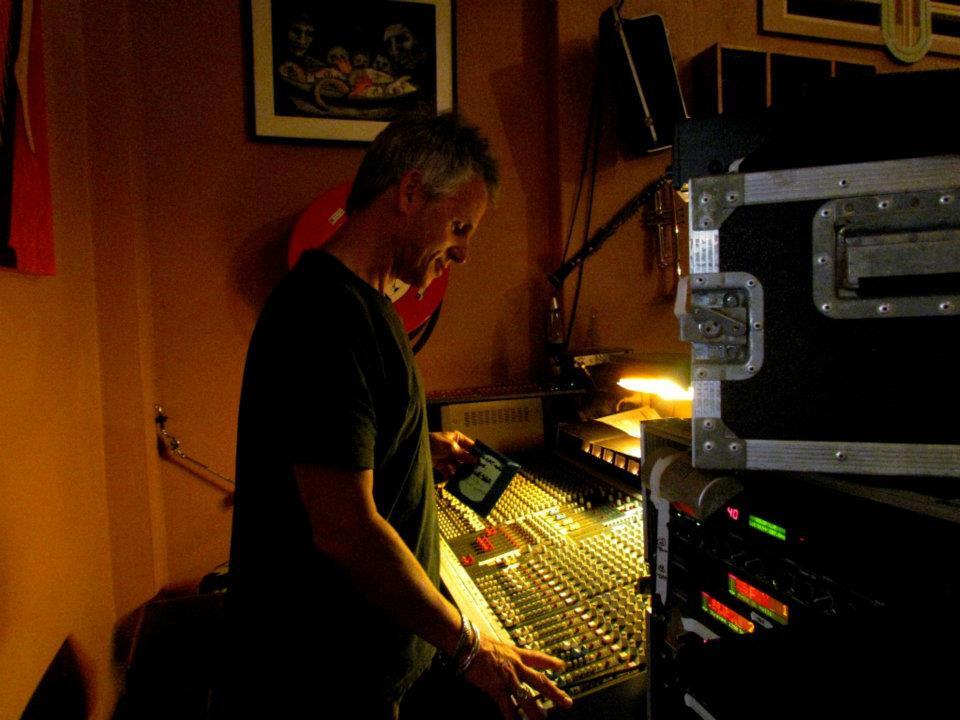
At work at a show for The Church
“My goal is to make the performer be heard the way that they deserve to be heard so they can succeed.”
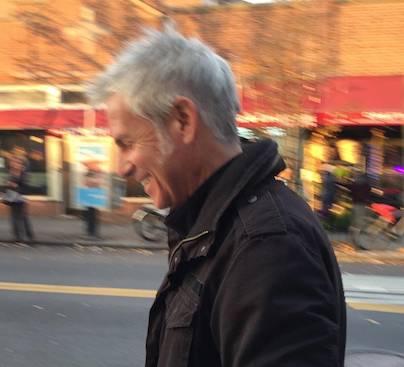
When he moved to Los Angeles, Robin collaborated with Nic Harcourt and the prominent NPR station KCRW, serving as a producer on the station’s “Sessions” series and "A Sounds Eclectic Evening" fundraisers, where six bands would perform on a revolving stage.

2008's Altered States, a unique producer-as-artist album featuring vocalists like Lisa Loeb, Rachael Yamagata, Pete Yorn, and the Blue Nile’s Paul Buchanan.

At McCabe's with assistant John Calacci
Robin also mixes for shows he's passionate about, such as the revered McCabe’s Guitar Shop. For many years, he has been involved with the Wild Honey Foundation’s benefit concerts, where an all-star lineup of performers put on once-in-a-lifetime memorable tributes to a specific album by much loved bands like The Beatles, The Beach Boys, The Kinks, The Band, Big Star, and more. These shows raise money for autism research. Before COVID-19 venue lockdown, these shows were a yearly highlight for the Los Angeles community.

With singer Skylar Gudasz for a Wild Honey concert (Photo by Steve Appleford)
Since its opening in 2015, Robin has served as production manager at L.A.’s acclaimed Teragram Ballroom. After the pandemic hit, he started working with NIVA (National Independent Venue Association) and its Save Our Stages initiative, helping to compile a “bible” of production-focused protocol to help venues reopen safely and keep business flourishing.
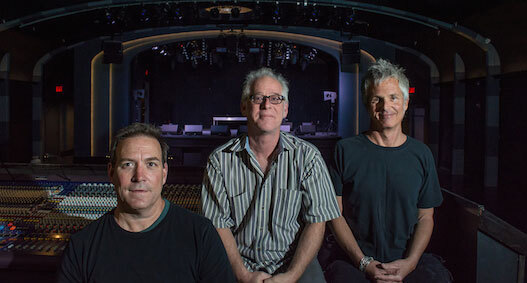
Jeff DelBello, Ken Blecher, and Robin at the Teragram Ballroom
Throughout his interview, his hard-earned advice from his experiences within a diverse range of jobs he's excelled at throughout his career is invaluable for those working — or wanting to work — in the music business. Whether it's the value of keeping an open mind for opportunities, the importance of making the artist comfortable for a show or during recording settings, or his thoughts on making and marketing music in the 2020s, Robin shares insights and a work ethic that helps to navigate the changing landscape of music and performance.
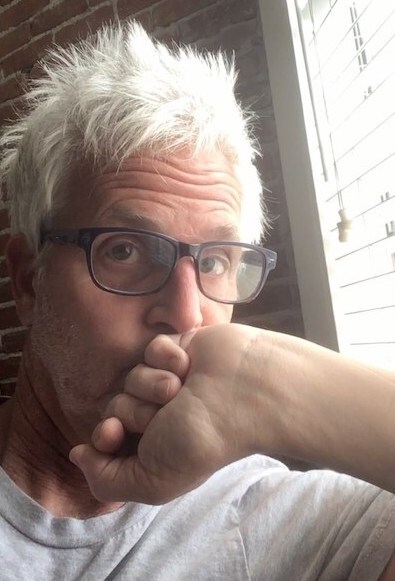
Please enjoy an entertaining, informative conversation with Robin Danar on the second episode of season two of Song Chronicles.
To support Robin Danar's medical expenses, go to https://www.gofundme.com/f/robin-danar-cancer-treatment-fund
And for more information on the Wild Honey Foundation, visit https://www.facebook.com/WildHoneyEagleRock
And for Save Our Stages, go to https://www.saveourstages.com

Friday Jan 22, 2021
Season 2: Episode 1. Linda Edell Howard
Friday Jan 22, 2021
Friday Jan 22, 2021
Season 2: Episode 1
Linda Edell Howard
Song Chronicles launches its second season with a truly unique music insider conversation with Linda Edell Howard.
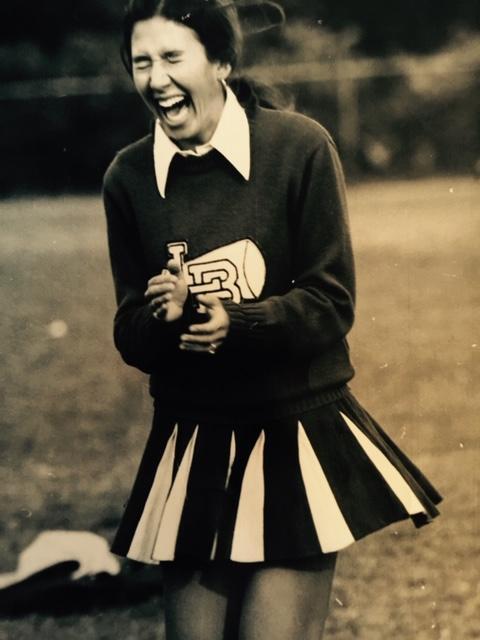
Linda during her high school cheerleading days
Linda is an attorney in Nashville who has been an advocate for songwriters and artists over the last 30 years. Her expertise, and the focus of our interview, is in the often-complicated areas of copyrights, publishing, and royalties.
In her first-ever podcast interview, she generously gives listeners an enlightening music business primer that any aspiring, or even experienced songwriter, would learn from. Linda discusses the significance of sync, blanket, and mechanical licenses, sources for royalties, and how song credits work — and the ways all of these can bring the songwriter, a "small business owner", as she calls them, money. We talk about how performing rights organizations differ from publishing companies, and how both differ from SoundExchange.
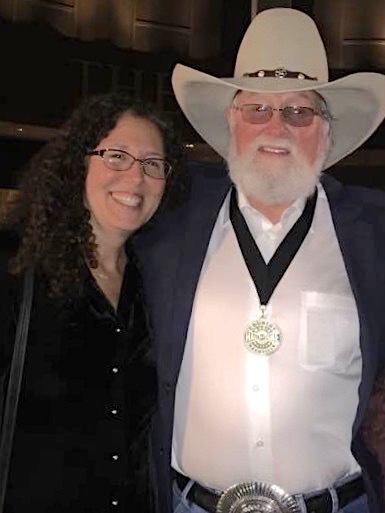
Linda Edell Howard with Charlie Daniels
One of Howard's specialties is in the field of legacy copyrights, especially termination rights. Her mantra “forever doesn’t mean forever” takes us further to her explanation of how songwriters can use the not-well-known termination laws to recapture the rights to their songs. In her world, people and their circumstances are always changing, and so is the value of a copyright. What does this mean for a music business attorney? Changing circumstances open doors to renegotiation, because as is the case with so many deals songwriters make starting out, no one knew the actual value of their catalog at that time they signed their publishing away. There is a window of time, Howard tells us, where those copyrights can revert back to the songwriter.
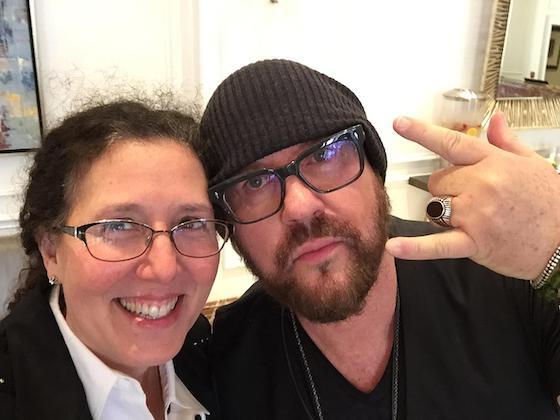
Linda with Desmond Child
You’ll discover the importance of the numbers 56 and 35 for copyrights, and what black box money and gray box money are — and how they can be windfalls for songwriters. Throughout our conversation, she shares some great insights and valuable tips.
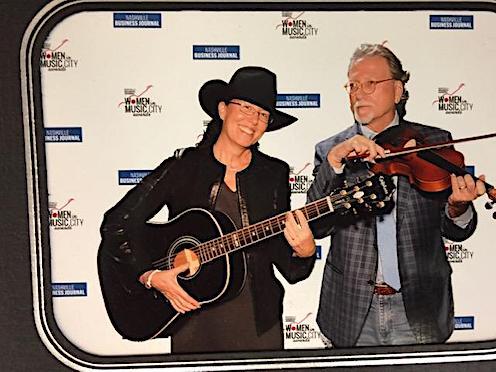
Linda with her husband, Doug Howard
Linda currently is a partner at the Nashville law firm Adams and Reese, where she leads its Entertainment and New Media team. She was one of the seven attorneys featured in Billboard’s Women in Music 2016 and among Nashville Business Journal’s 2019 Women in Music City Award honorees. Linda takes deep pride in how her work, as she puts it, “actually changes people’s lives.”

Billboard's Women in Music 2016
(Linda third from the right)
As a teenager growing up in New Jersey, Linda aspired to be a rock photographer, hanging out at clubs along the Jersey Shore. She shifted her career goal from album cover design to law after realizing she could help musicians more as an attorney.
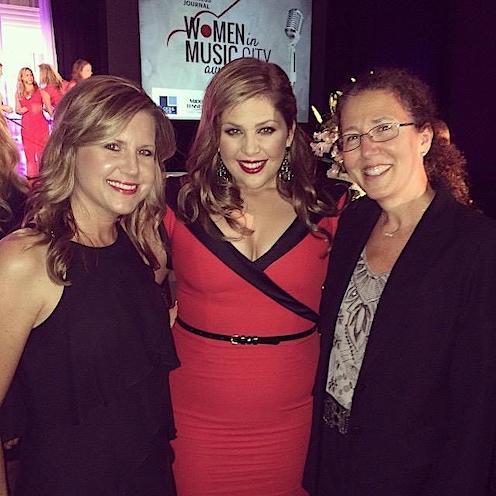
Kelly Putty (Ordinary Hero Foundation), Hillary Scott (Lady A) with Linda
After she graduating law school, Linda would spend her Sunday nights doing “contract clinics” for musicians at the Asbury Park’s legendary Stone Pony club, charging only a pizza slice and a beer. Her law career has included working for the Elvis Presley and George Gershwin estates and at PolyGram Music Publishing Group. More recently, her clients have included Fats Domino, Don Everly, Lady A, Desmond Child, Charlie Daniels, and Gretchen Wilson.
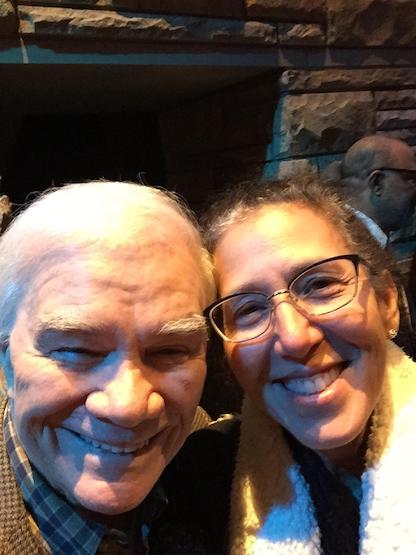
Linda and Nashville Songwriters Hall of Famer Dickey Lee
We are delighted to present our first episode of Season 2,
an enlightening conversation with Linda Edell Howard.

Friday Oct 09, 2020
Episode 12. The McBroom Sisters
Friday Oct 09, 2020
Friday Oct 09, 2020
Episode 12
The McBroom Sisters
"Did you exchange a walk-on part in the war for a lead role in a cage?"

After spending years working on other people’s projects, the McBroom Sisters have just released their own album – and done so on their own terms.
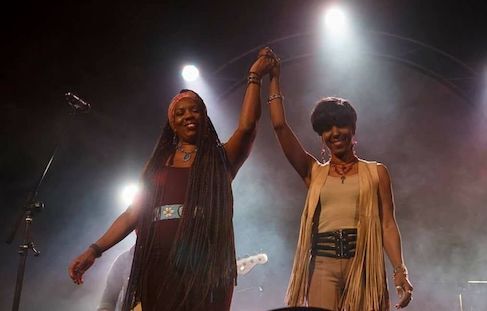
In this episode, we talk with Durga and Lorelei McBroom. These incredible sisters are on the shortlist when some band needs a powerhouse guest vocalist, and they each boast star-studded resumes that any musician would envy.
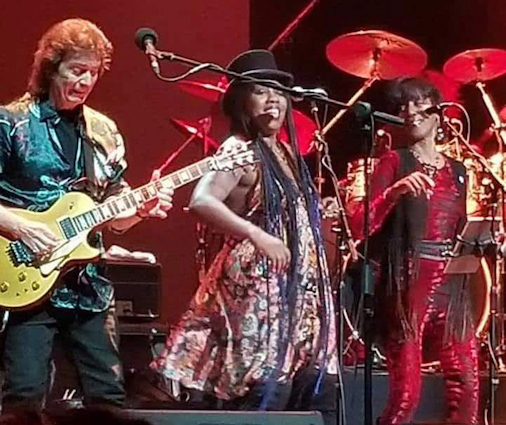
Durga and Lorelei on stage with Steve Hackett
Lorelei has done major tours with Pink Floyd, the Rolling Stones, and Rod Stewart, along with working with a diverse range of musicians, including Nile Rodgers, Mark Collie, Chris Isaak and (with her sister) Steve Hackett from Genesis. Her songs have been recorded by Sister Sledge and Earth, Wind & Fire’s Philip Bailey, and, for the past decade, Lorelei has been a featured vocalist for the acclaimed Australian Pink Floyd Show.

Lorelei singing with Rod Stewart
Durga also has sung with Pink Floyd – both in the studio and on tour. Her techno rock duo Blue Pearl, with Killing Joke bassist Youth, scored a hit with “Naked In The Rain” and she collaborated with Billy Idol on his Cyberpunk album. Durga has performed with numerous Pink Floyd tribute groups, and now fronts the tribute band Pink Floyd Legacy.

Durga performing in the Pink Floyd Show UK
In our conversation, the McBroom Sisters talk about how their busy careers resulted in their debut album taking seven years to finish and how the pandemic factored into completing it. The album’s title, Black Floyd, reflects their extensive connection with Pink Floyd’s music and also pays homage to the many black musicians who influenced rock ‘n roll.
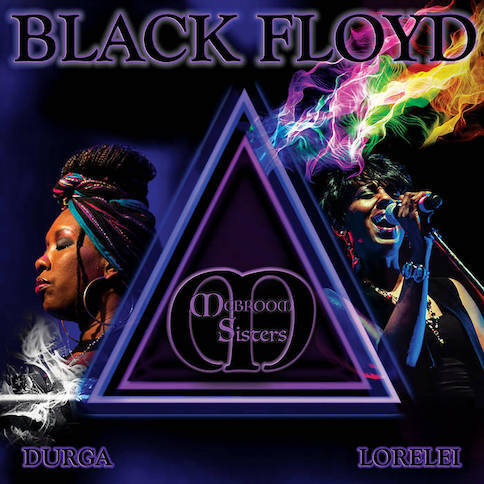
Besides putting their own stamp on several classic Floyd tunes, the sisters also showcase their own original material on Black Floyd, which includes co-writes with long-time Pink Floyd collaborators Jon Carin and Guy Pratt as well as Motörhead’s late frontman Lemmy Kilmister.

Louise with Lorelei and Durga
Our host and producer Louise is also one of the album’s guest performers, singing with them on “Wish You Were Here.” Durga and Lorelei candidly discuss being black women in the rock world, the image of women in society, and how they have used their sexuality in empowering ways.
Please enjoy this insightful conversation with Durga and Lorelei McBroom on episode 12 of Song Chronicles.

Friday Sep 25, 2020
Episode 11. Gloria Estefan - Part 2
Friday Sep 25, 2020
Friday Sep 25, 2020
Episode 11
Gloria Estefan
Part Two
Song Chronicles proudly presents its eleventh episode, the second of a two-part conversation with Gloria Estefan.

Gloria Estefan has lived a phenomenal life since arriving in America with her family from Cuba when she was two years old. As a teenager, she joined the Miami Sound Machine, where she also met her future husband Emilio. The group slowly built a following over the course of a decade, first finding success in Latin America before hitting it big internationally with “Conga” in 1985.

Whether with the Miami Sound Machine or solo, Gloria has been a regular on the charts, racking up hits with “Can’t Stay Away From You,” “The Rhythm is Going to Get You” and “Anything For You” in the ‘80s; "Coming Out Of The Dark," "Mi Tierra," and "Oye” in the ‘90s, and “Wrapped/Hoy,” “Out of Nowhere,” and “Hotel Nacional” in the 21st century. She has sold over 100 million records worldwide, ranking her among the top-selling artists around the globe. And that success continues with her recently released album, Brazil305, which debuted in the top 10 on Billboard’s Tropical Albums chart.
The many prestigious accolades that Gloria has received almost match the number of her hit songs. She was the first Cuban-American to receive the Kennedy Center Honors and the first female singer to be awarded Latin Recording Academy Person of the Year. Gloria and Emilio were the first couple and first Cuban-Americans to receive the Gershwin Prize as well as the first couple to get the Presidential Medal of Freedom. A cultural trailblazer and role model, Gloria also has been honored for her humanitarian and philanthropic work by organizations like MusiCares, Congressional Hispanic Caucus Institute, National Music Foundation, and Billboard.
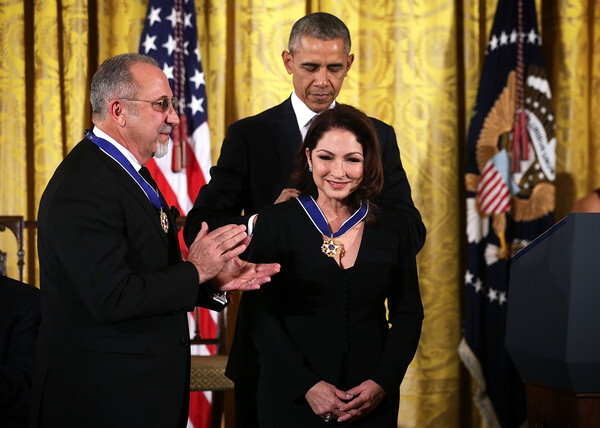
Gloria and Emilio receive the Medal of Freedom from President Obama
Alex Wong/Getty Images North America
Talking from her home in Miami Beach, Gloria shared some of her experiences during the pandemic. There were some things that she enjoyed — like doing interviews from home and being able to do her own hair and make-up (she also revealed that she’s known as the “eyebrow queen”) — and things that she disliked (such as not being able to easily get together with the rest of family, especially her 8-year-old grandson).
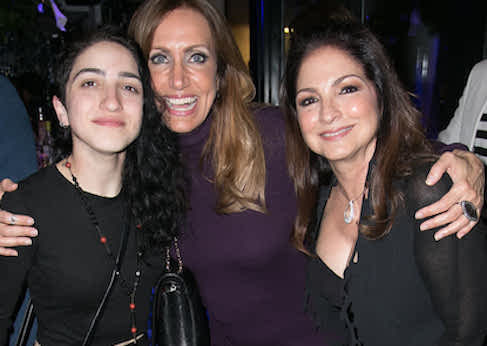
Gloria with her daughter Emily and niece Lili
She has kept busy during the pandemic not only working on the release of her new album, but also developing a Facebook Watch series, Red Table Talk: The Estefans that she is doing with her daughter Emily and niece Lili. One thing that she loves about doing this show is that it allows her to spend more time with her daughter.

Gloria performing with Emily
Emily Estefan is an up-and-coming singer-songwriter and Gloria talked about trying to coax her to release more of her music and not be so caught up in making recordings sound perfect. Her advice to her daughter — as well as any musician — is that making music is about “the free expression of emotion, a thought (and) an idea.”
We also had a candid discussion about the highly sexualized ways that young female performers are often presented nowadays. While believing that everyone should express themselves as they want to, she cautions to think twice about doing a lot of “booty shaking” because it can come back to haunt you. Gloria, who revealed that she always tries to “elevate” with her music, said that there’s “no need to do something outside of your comfort zone…(and) it would be a shame if you did it to get attention.”
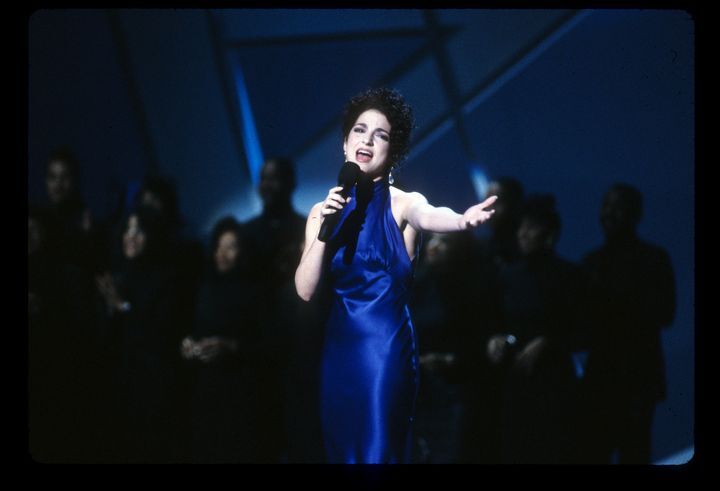
Gloria performing in 1991
ABC Photo Archives via Getty Images
One thing that has kept Gloria balanced — during the pandemic as well as before — is something that happened to her 30 years ago. In 1990, Gloria was very badly injured in a tour bus accident. She was nearly paralyzed and had to learn to walk again. A lesson she took away from this experience was to take what happens in life with a grain of salt. “I’m happy that I can do anything,” she said. “It’s a joy!”

Please enjoy the second part of my conversation with Gloria Estefan.

Friday Sep 18, 2020
Episode 10. Gloria Estefan - Part 1
Friday Sep 18, 2020
Friday Sep 18, 2020
Episode 10
Gloria Estefan
Part 1
Song Chronicles is proud to present its tenth episode, part one of a two-part conversation with Gloria Estefan.

The Cuban-American singer achieved worldwide stardom in the mid-80s. Her long, successful career has been recognized with the Presidential Medal of Freedom, Kennedy Center Honors, the American Music Award for Lifetime Achievement, and induction into the Songwriters Hall of Fame. Additionally, her life and musical career with her husband Emilio serve as the basis for the Broadway musical On Your Feet!
I spoke with Gloria from her home in Miami Beach on August 19, the week after the release of her long-awaited album Brazil305. During our conversation for Song Chronicles, Gloria spoke on a wide range of topics, from her start in the music business to the art of songwriting and music that has influenced her.

She also speaks about the importance of family — throughout her life and during the pandemic — and a mother-and-daughter theme runs through the interview. This seems quite appropriate since I got to know Gloria in 2013 when she performed at the White House as part of the Gershwin Prize ceremony honoring my mother Carole King.
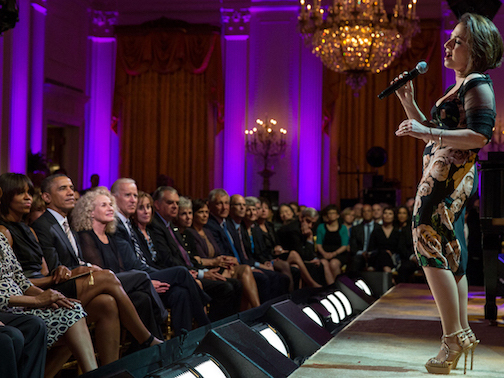
Gloria Estefan performs at the Gershwin Prize ceremony honoring Carole King
Photo by Pete Souza. Courtesy of The White House
Gloria came from a family that was full of musicians. Her mother was a born performer who actually won a Shirley Temple contest that included a trip to Hollywood. Gloria’s grandmother, whom she described as being very forward-thinking for her time, was ready to take Gloria’s mom to Hollywood; however, her grandfather forbade them from going.

Gloria's mother and grandmother
Gloria was two when her family arrived in America from Cuba. As a child, Gloria enjoyed singing but she was introverted and shied away from performing. Her grandmother, who was like a stage mother to her, urged Gloria to sing, telling her “you won’t be happy unless you do what you are meant to do.”
Gloria shares the funny story about the first time she met Emilio Estefan in 1975 when she was 17. His accordion was covering his shorts “so it looked like he was naked” but “he had great legs.” That summer, Gloria saw Emilio’s band, the Miami Latin Boys, play at a wedding. He asked her to sing; she did and got a standing ovation. He asked her to join his band but she said no. Eventually, though, she said yes, remembering what her grandmother had told her. Her mom, however, was quite upset over her joining the group, so Gloria got her cousin, Mercy, to join too.
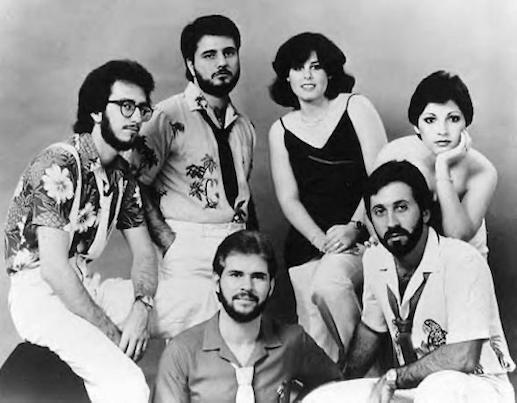
That is Gloria on the right
Emilio loved the first song Gloria ever wrote, “Tu Amor Conmigo,” so much that it was put on the band’s first single. Since there were now girls in the Miami Latin Boys, they needed to change their name. Gloria says that she didn’t like the name Miami Sound Machine; her idea was simply Miami, but the new name served them well.
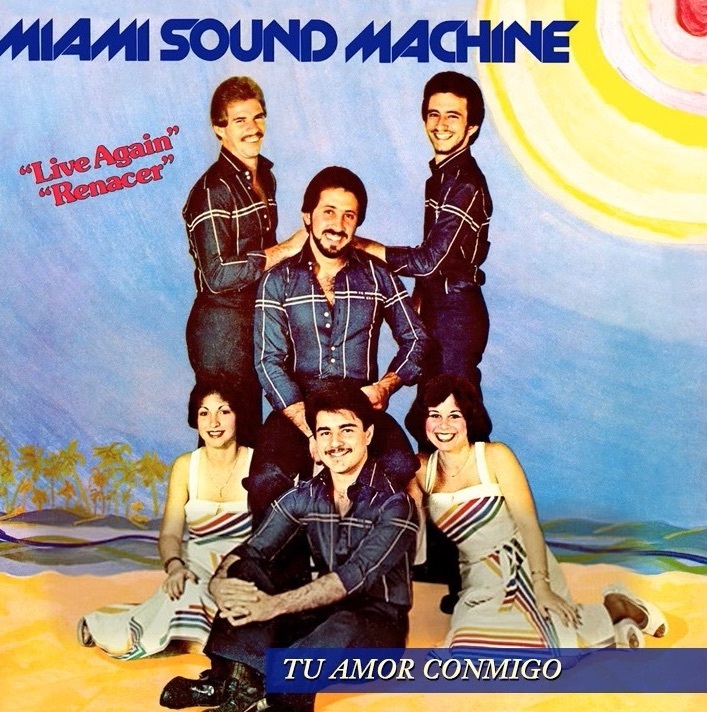
That first single was a big hit in Latin America, where they played to large crowds, but it wasn’t a hit in America, where they still played weddings. This taught her that fame “can go away as fast as it comes,” adding that “it was important that I had a good ten years before worldwide success exploded” because it allowed her to be more relaxed and honest on stage, which in turn made her a better live performer.
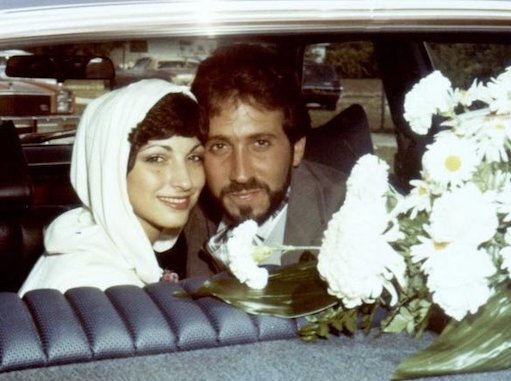
Gloria and Emilio on their wedding Day
Courtesy of Gloria and Emilio Estefan
Gloria married Emilio in 1980 on the day that she turned 21. She admits that they are “a rare combo.” She says that they are two different types who “empower each other” and are “strong-willed but not (with) big egos.” She also describes Emilio as "the biggest feminist that she knows" with "no qualms with women being in positions of power."
She admires his “uncanny ability to zero in on the one line or one part that I was having doubts” about in a song. This has strengthened her skills in crafting songs. Much of her songwriting is inspiration-based, with her “inspirations (coming) through me not from me.”
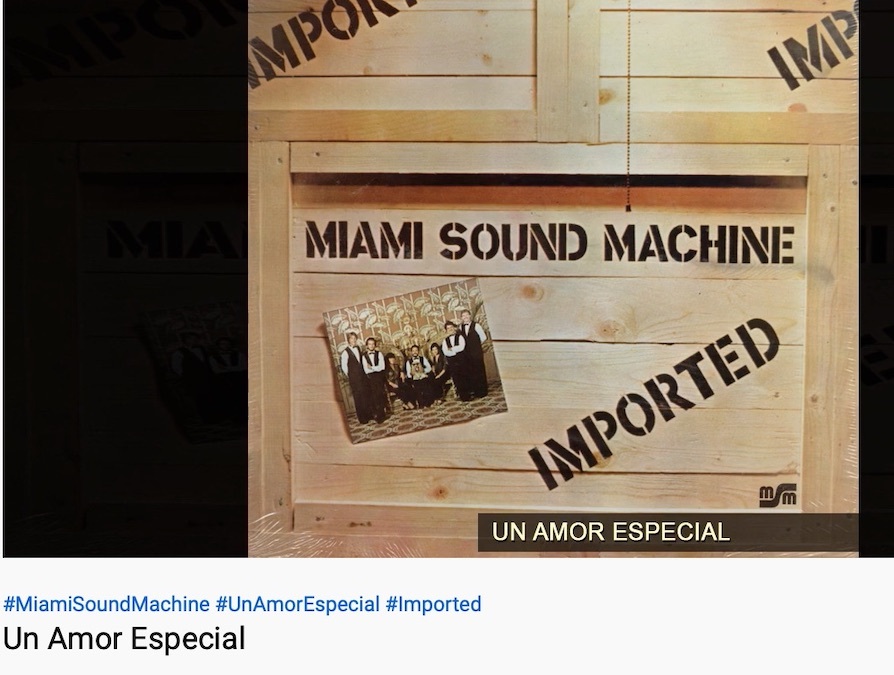
Emilio was the inspiration for “Un Amor Especial,” one of the songs that has remained important to Gloria over time. At the time she wrote this song about a life-long love, it was wishful thinking, but it turned out to be a wish that has come true.

Another tune that has stayed significant to Gloria is “Nayib's Song (I Am Here for You),” which she wrote for her son after the very severe 1990 tour bus accident that they were in. The song speaks of having faith to survive a tumultuous time — a message that still holds true for her today, particularly because her grandson is the same age now that her son was then.
Our conversation frequently turned to music that played a big role in Gloria’s life. Stevie Wonder’s Songs In The Key Of Life and Elton John’s Goodbye Yellow Brick Road were albums that she “wore out copies of (while) poring over every lyric.”
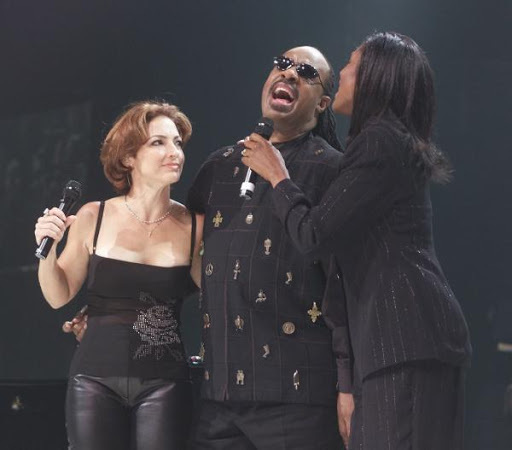
Stevie Wonder with Gloria
Gloria also explains her very olfactory memory for music, resulting in her associating certain songs with certain smells. So when she hears Seals & Crofts's “Summer Breeze,” she will smell freshly cut grass, or smell a laundromat when she hears Gerry and the Pacemakers’ “Ferry Across The Mersey.”
During the pandemic, Gloria has increased her music listening because “I need to feel more.” Her choices range from P!NK and Alanis Morrissette to Nat King Cole as well as Cuban greats, like Cachao and Celia Cruz, and the fabled Mexican songwriter Agustín Lara.

Gloria sings on stage with Celia Cruz
She credits her broad musical tastes to growing up on her mother’s eclectic record collection listening to the such musical greats from Latin America, Cuba and the United States, such as Carmen Miranda, Sérgio Mendes & Brasil '66, Jobim and Johnny Mathis. She mentions how “I was over the moon to do a duet (“Mary's Boy Child”) with Johnny Mathis.”
Her mother’s record collection also held a lot of Brazilian music, which influenced Gloria throughout her career. The first Miami Sound Machine album included a cover of the Antonio Carlos & Jocafi song “Malvina” and the 1983 MSM album, Rio, featured new lyrics to popular Brazilian songs. The title of her new album, Brazil305, is a nod to Sergio Mendes’s band with 305 representing Miami’s area code. The new album also led Gloria to make a documentary exploring Brazilian and Afro-Cuban music that should come out in 2021.

Brazil305, which contains older songs of hers redone in various Brazilian musical styles, is also a very personal effort for Gloria. In our conversation, she talks about how, back in 2016, she played the demos for her mother, who loved them. However, her mom died soon afterward following a brief illness. When Gloria went to finish the album, she wasn’t able to sing the songs because the music was too connected to her mom.
Gloria waited over a year to return to the studio, but it was worth the time because she was able to sing the songs with the joy that they were intended to have. The album’s release, however, was delayed then by the COVID pandemic along with the George Floyd shooting. Gloria, however, feels that now is the right time for the album to come out because the “message of music is we are one.” She says she feels honored to have the opportunity to put music out into the universe that is healing and soothing.

Please enjoy the first episode of my conversation with Gloria Estefan.
